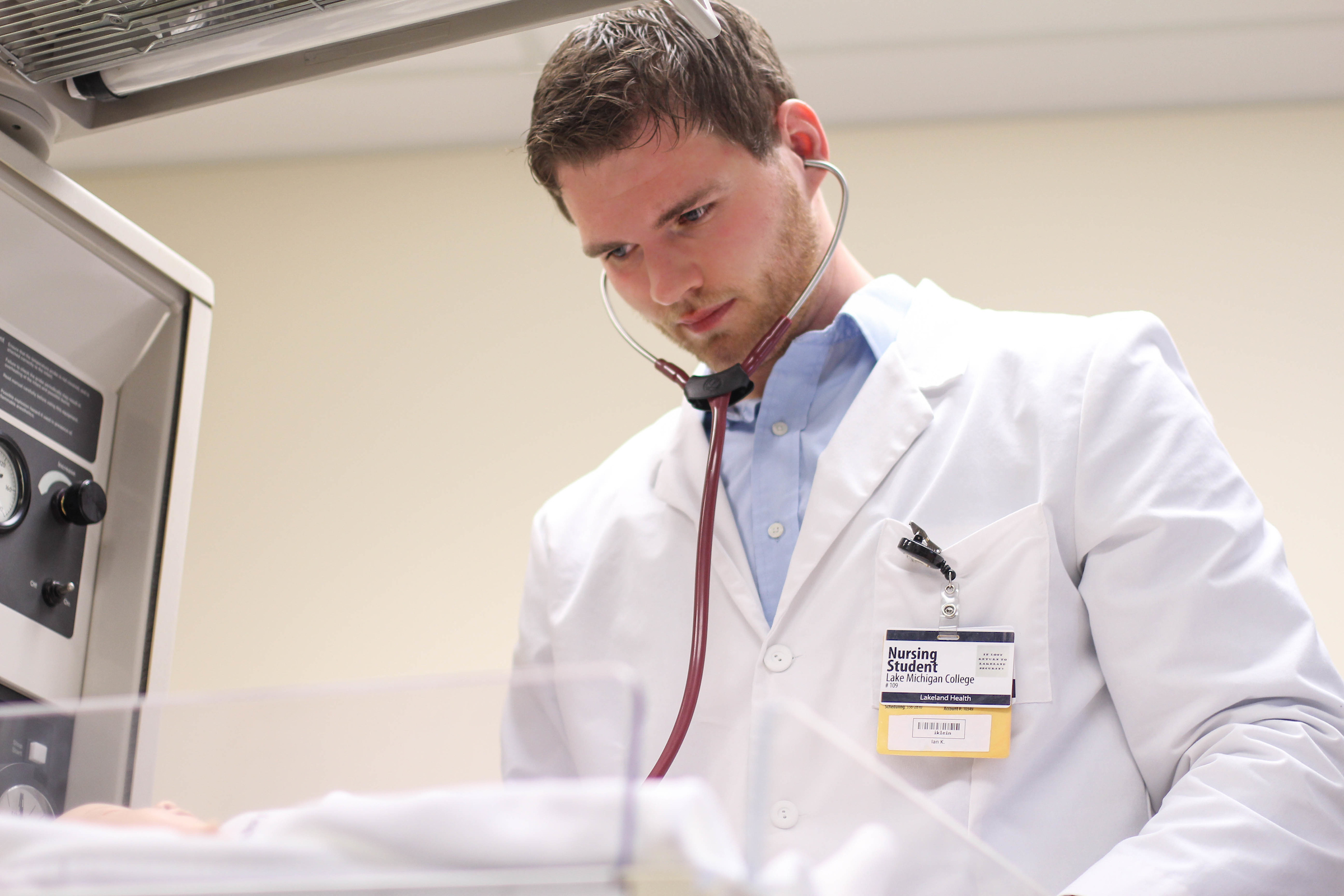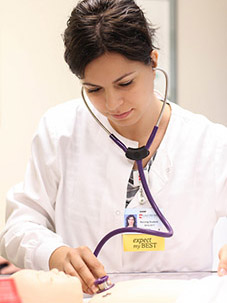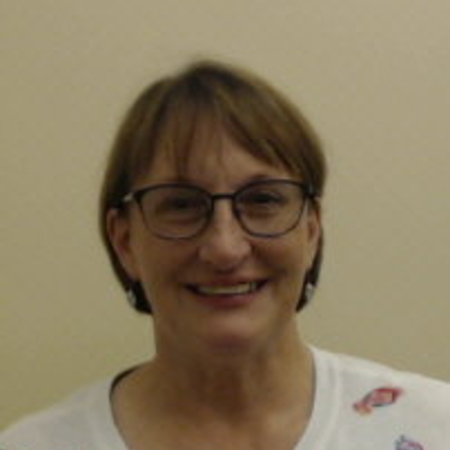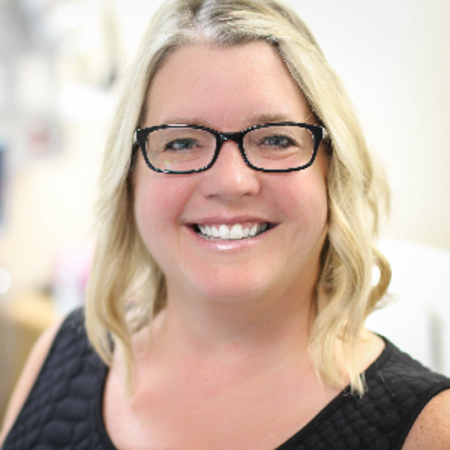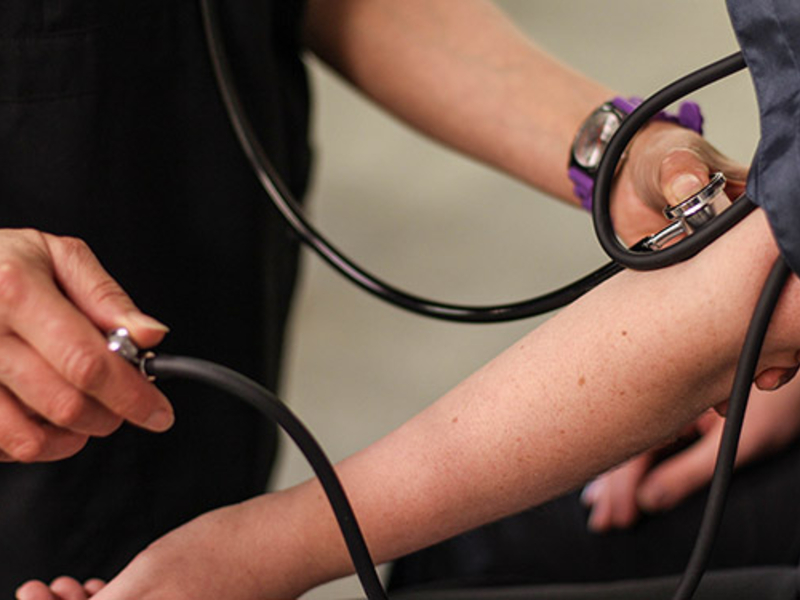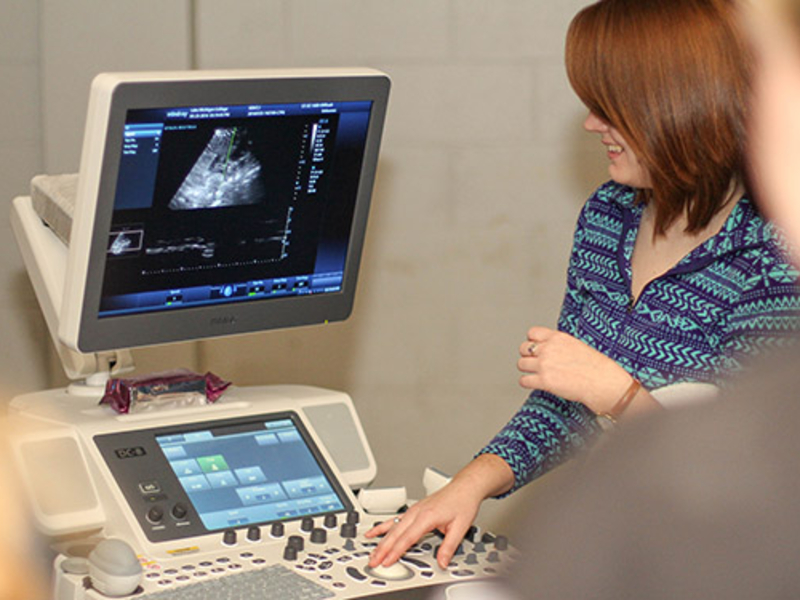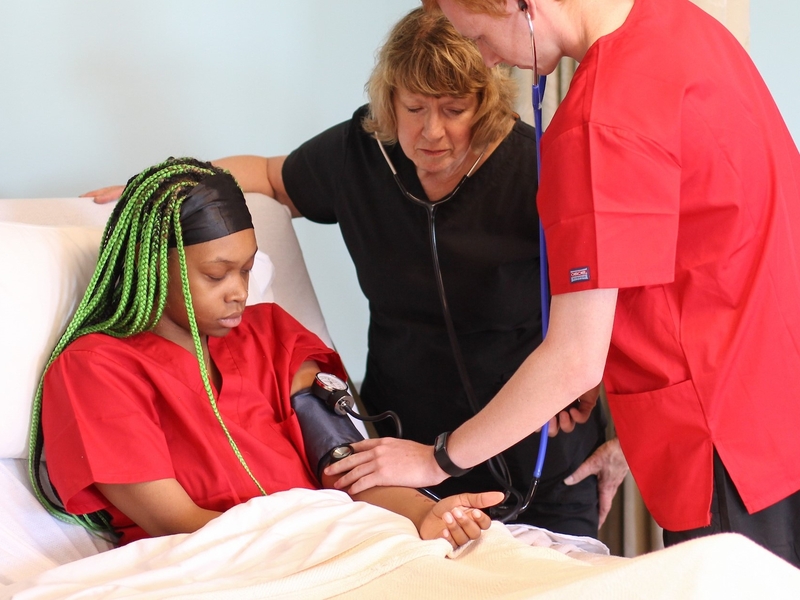The Nursing Program at LMC
Lake Michigan College's Nursing program has been accredited since 1981. The Practical Nursing (LPN) program was inaugurated in 1961 and closed in 2014. The associate degree Registered Nurse (RN) program began in 1969.
The Nursing program is designed to prepare the student for employment in the field of nursing; positions are located within hospitals, medical clinics, private practices, and other medical institutions.
Upon successful completion of the four-semester Nursing program at Lake Michigan College, you will receive the Associate in Applied Science (AAS) Nursing-RN degree. Graduates will be eligible to take the NCLEX exam in the State of Michigan. Satisfactory completion of the NCLEX exam allows a nurse to use the professional credentials RN (Registered Nurse).
The College has not made a determination as to whether the LMC Nursing program’s curriculum meets a state's educational requirements for licensure or certification outside the State of Michigan. Graduates who want to practice in other states should review those requirements via the National Council of State Boards of Nursing website at https://www.ncsbn.org/14730.htm. Visit the State of Michigan Licensing and Regulatory Affairs (LARA) Bureau of Professional Licensing site for detailed RN licensure and pre-application requirements.
As a Registered Nurse (RN), you will provide primary care to clients of all ages in a variety of healthcare settings including hospitals, clinics, offices, nursing homes, home healthcare settings, schools, research facilities, or community agencies.
You will be responsible for developing, implementing, and evaluating a plan of care for clients and assisting them in achieving their health goals through effective communication, decision-making, problem-solving, management, and technical skills. When providing direct patient care, you will observe, assess, and record symptoms, reactions, and progress; assist physicians during treatments and examinations; administer medications; and assist in health promotion, convalescence, and rehabilitation.
Program Mission
The mission and core values of the Nursing Program at Lake Michigan College build on the College’s mission statement by empowering students to serve their community’s healthcare needs as entry level nurses.
Program Philosophy
The Nursing program of Lake Michigan College supports the College’s guiding principles in the core Nursing values which guide the program outcomes:
- Patient Centered Care
- Professionalism
- Evidence-Based Practice
- Information Management: Informatics
- Professional Collaboration
- Quality Improvement and Safety
- Professional/Leadership Development
Program Conceptual Framework
The Nursing faculty at Lake Michigan College adopted an organizing framework for the program that reflects the core values of the National League for Nursing (NLN 2023), which include Caring, Integrity, Diversity & Inclusion, and Excellence. This framework gives structure to curriculum and serves as a means of implementing the outcomes of the program through knowledge, skills, and attitudes.
The organizing framework is based on the philosophical beliefs of the faculty regarding the program outcomes: Patient Centered Care, Professionalism, Evidence-Based Practice, Information Management: Informatics, Professional Collaboration, Quality Improvement and Safety, and Professional/Leadership Development. The framework also embraces the four NLN Competencies for Graduates of Nursing Programs (2023): Human Flourishing, Nursing Judgment, Professional Identity, and Spirit of Inquiry.
Program Accreditation
The Associate in Applied Science (AAS) Nursing program at the Lake Michigan College Benton Harbor Campus is located in Benton Harbor, MI and accredited by the Accreditation Commission for Education in Nursing.
Accreditation Commission for Education in Nursing (ACEN)
3390 Peachtree Rd NE, Suite 1400
Atlanta, GA 30326
(404) 975-5000
www.acenursing.org
The most recent accreditation decision made by the ACEN Board of Commissioners for the Associate in Applied Science (AAS) - Nursing program is Continuing Accreditation. View the public information disclosed by the ACEN regarding this program.
The Nursing Program at Lake Michigan College has been accredited since 1981.
College Accreditation
Lake Michigan College is accredited by the Higher Learning Commission, a regional accreditation agency recognized by the U.S. Department of Education. More information on College and Program Accreditation is available on the LMC website at www.lakemichigancollege.edu/accreditation.
The Higher Learning Commission
230 South LaSalle Street, Suite 7-500
Chicago, Illinois 60604-1411
(800) 621-7440 phone
www.hlcommission.org/
Articulation
The Lake Michigan College Nursing program has partnerships with several four-year institutions that will allow graduates to complete the Bachelor of Science in Nursing (BSN) degree in two years or less following graduation from LMC.
Eligibility for RN Licensure
This program will prepare you to take the NCLEX exam and obtain licensure in the State of Michigan. Graduates who want to practice in other states should review the RN licensure requirements on individual state websites. Visit the State of Michigan Licensing and Regulatory Affairs (LARA) Bureau of Professional Licensing site for detailed RN licensure and pre-application requirements.
If you have any concerns regarding your licensure eligibility under the Michigan Public Health Code or RN applicant criteria, please visit the State of Michigan Licensing and Regulatory Affairs (LARA) Bureau of Professional Licensing for additional State licensure and pre-application requirements.
The Michigan Board of Nursing requires a criminal background check prior to licensure and for students who access a clinical setting as part of program requirement. Nursing program acceptance is based on the Michigan Board of Nursing Public Health Code requirements for criminal background checks. Additionally, states can deny a license to an applicant for any future infractions. The State Board has identified mandatory criminal record exclusions. If you have been convicted of a felony or misdemeanor, you may be ineligible to access the clinical setting necessary for program completion and unable to sit for the NCLEX for Registered Nurse licensure. If you have questions about your situation, please call the Michigan Board of Nursing at 517-335-0918. The Michigan Public Health Code may be found on the Michigan State website here.
